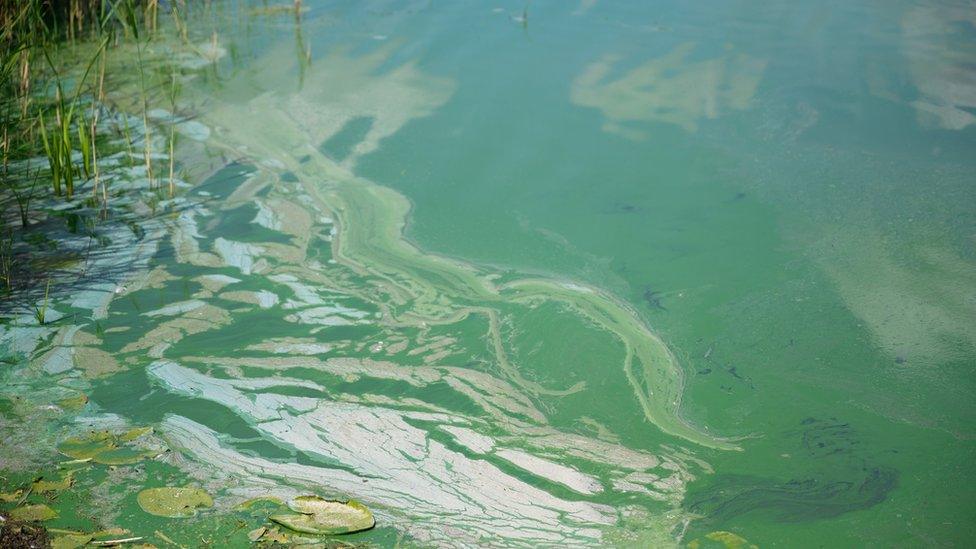Climate change: Lough Neagh temperature rises 'alarmingly'
- Published
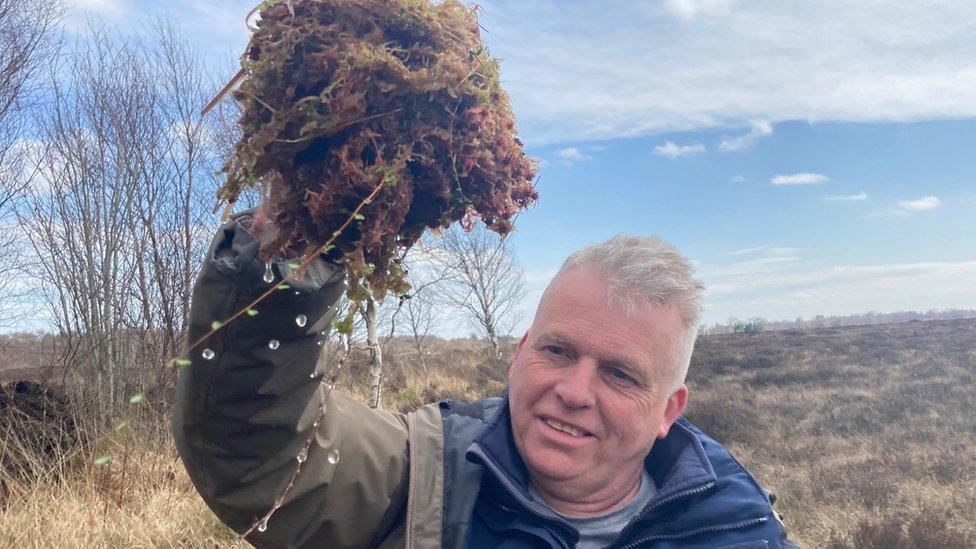
Healthy peatlands are important for carbon storage, says Peter Harper
The water temperature in Lough Neagh is rising "alarmingly fast" researchers have said.
The temperature in the largest freshwater body of water in the UK and Ireland is 1C higher than in 1995.
A report also said more than twice as much carbon was stored in ground around the lough as previously thought.
The Lough Neagh Partnership (LNP) commissioned the study as it took up a lease on land on the south-west shoreline, with a view to restoring it.
Many peatlands around the lough have been milled over the years for compost and fuel.
The Climate Change Impact and Carbon Storage Study took core samples round the entire shoreline of the lough to assess the carbon stored there.
In some cases, those samples went 9m down below grass fields.
The report revealed a total of more than 14 million tonnes of carbon stored in the catchment area.
"Previously our best estimate of carbon stored in the Lough Neagh catchment area was about 6.6 million tonnes," said report author Jim McAdam.
"We got that from the surface soil maps that were done in the 1990s. In this study, we looked at the actual depth of the carbon itself, and we've come out with our calculation of carbon."

"It's more than 14 million tonnes of carbon, over twice what our original estimate was.
"That's really important, because nowadays the whole talk is how do we keep that carbon in the ground? That carbon and that habitat has the potential to sequester more carbon.
"So the more we have the better and, therefore, the more we know about it, the more we've measured, the better we can manage the whole site."
That whole site includes lands at Derrytresk and Derryloughan, which were gifted to the Royal School Dungannon in 1608, at about the time of the Plantation of Ulster.
It covers 320 acres.
The Education Authority granted a lease on the land to the LNP in December 2022.
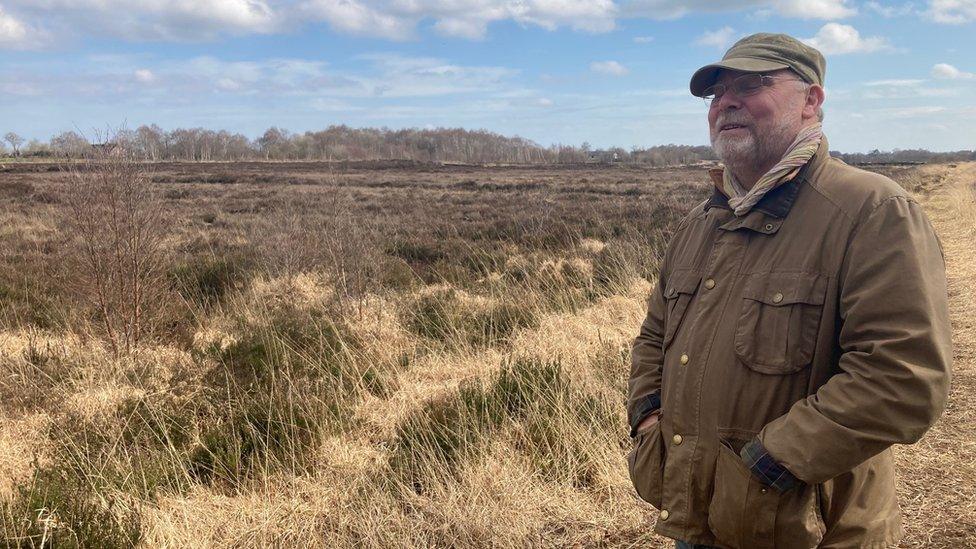
Gerry Darby says the local community have been supportive of their conservation goals
The site has been affected by unregulated peat extraction.
The partnership will now manage the site with a focus on conservation, restoring the peatlands and enhancing the natural habitat.
The partnership's manager Gerry Darby said: "There has to be a balance between legal - and I emphasise legal - peat extraction, between that and protecting important species [like the curlew] as well.
"We're just trying to find that balance and the community, I think, are very supportive in trying to find that balance as well."
Mid Ulster Council said it was investigating seven potential breaches of planning in peat extraction.
It is also considering a planning application for extraction.
In the Republic of Ireland, a ban on extraction in Special Areas of Conservation was introduced in 2011.
A ban on the use of turf as fuel was also brought in by the Irish government in October 2022.
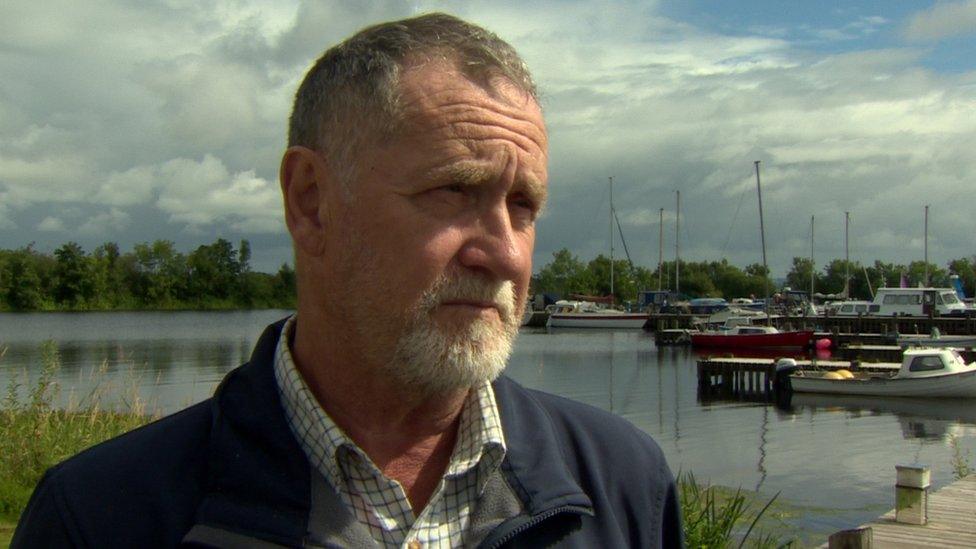
Farmer Michael Meharg said passing bills will not be enough to invoke change
In Northern Ireland, a peatlands strategy has been consulted on but cannot proceed without sign-off from a Stormont minister.
It is expected to include a ban on peat sales from 2025.
That, farmer Michael Meharg said, will need incentives.
He said: "There are government policies on peatland, there are government policies on farming with nature and being environmentally conscious and friendly.
"So passing bills when there's some sort of economic gain to be with it, it's very difficult to ask people to do something just for the sake of it."
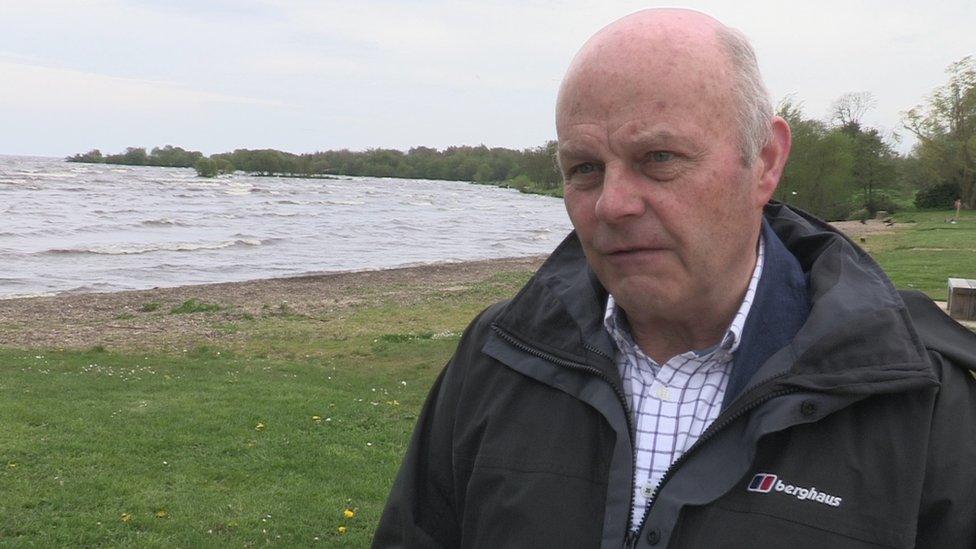
The carbon found in the ground is more than double what Jim McAdam and the Lough Neagh Partnership thought
The partnership's shoreline environment officer, Peter Harper, is aware of the tradition of peat in the area.
However, he is also aware of what healthy peatlands mean for the environment.
"These are very important carbon stores. Now, traditionally, they have been extracted for compost and there's a commercial industry around that and that's fine," he said.
"But I don't think that can continue indefinitely because collectively, all these actions do have an impact on climate change."
Related topics
- Published12 August 2023

- Published4 August 2023
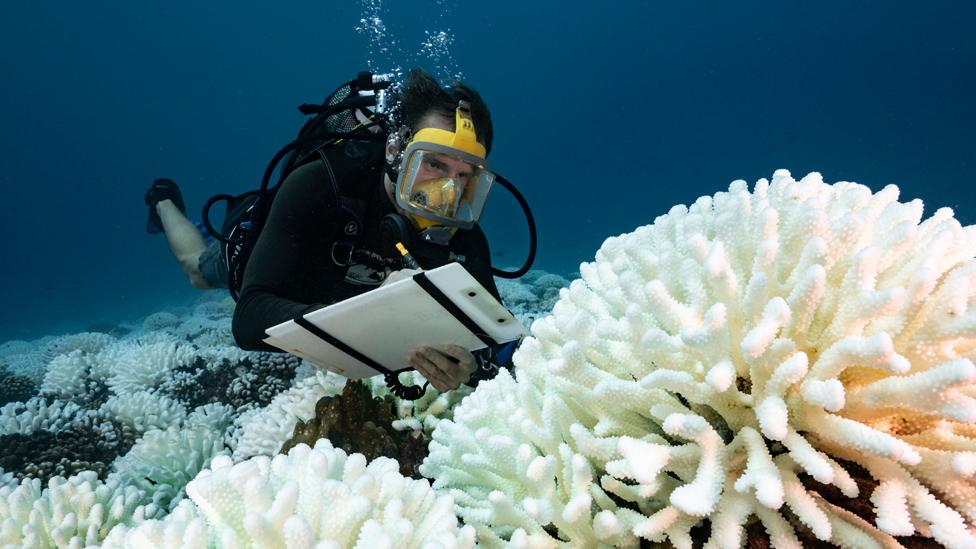
- Published11 December 2023
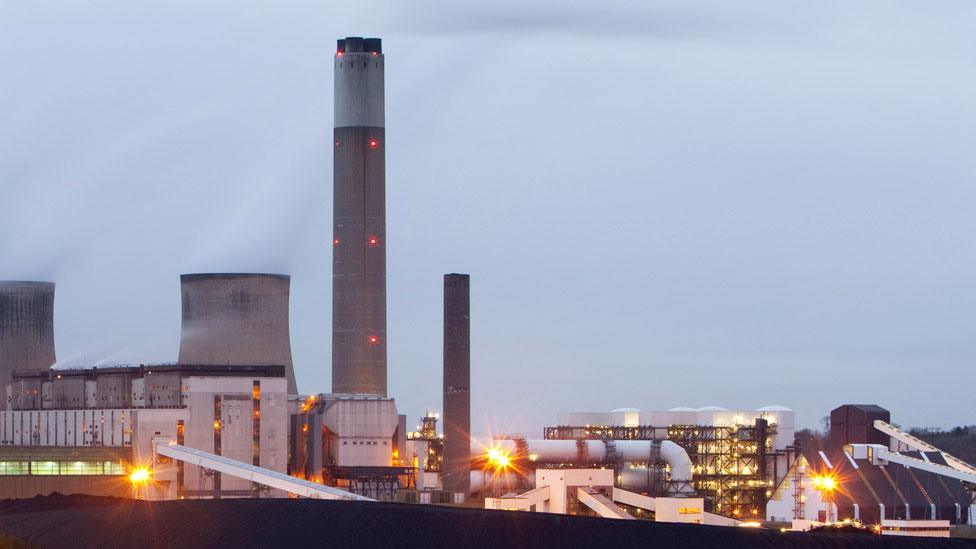
- Published28 June 2023
